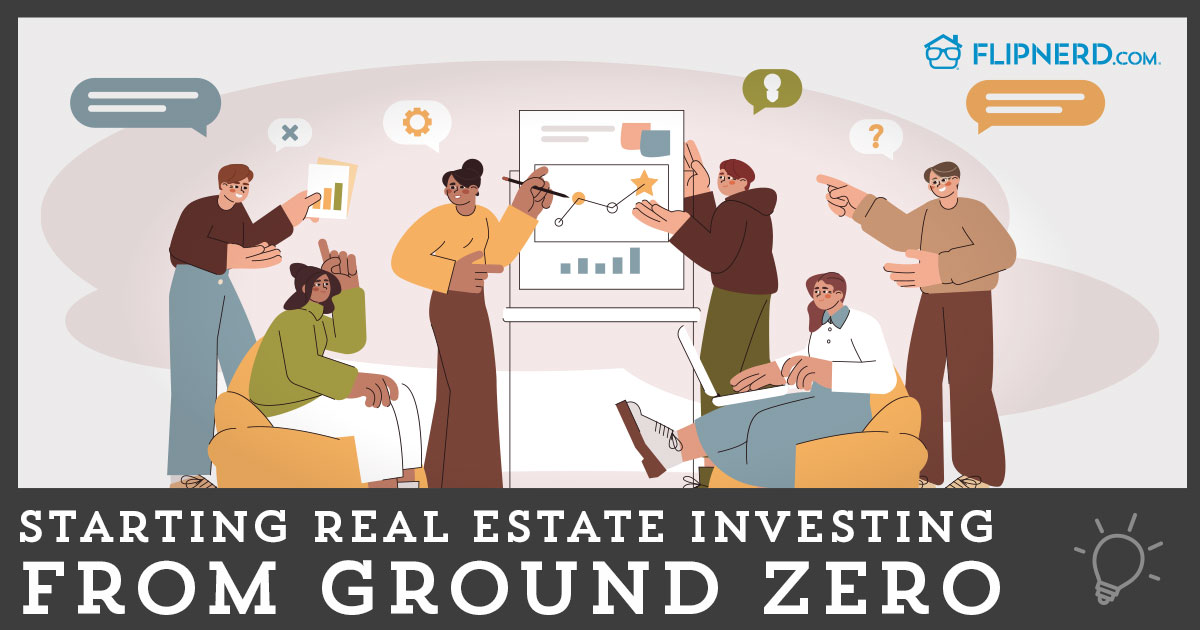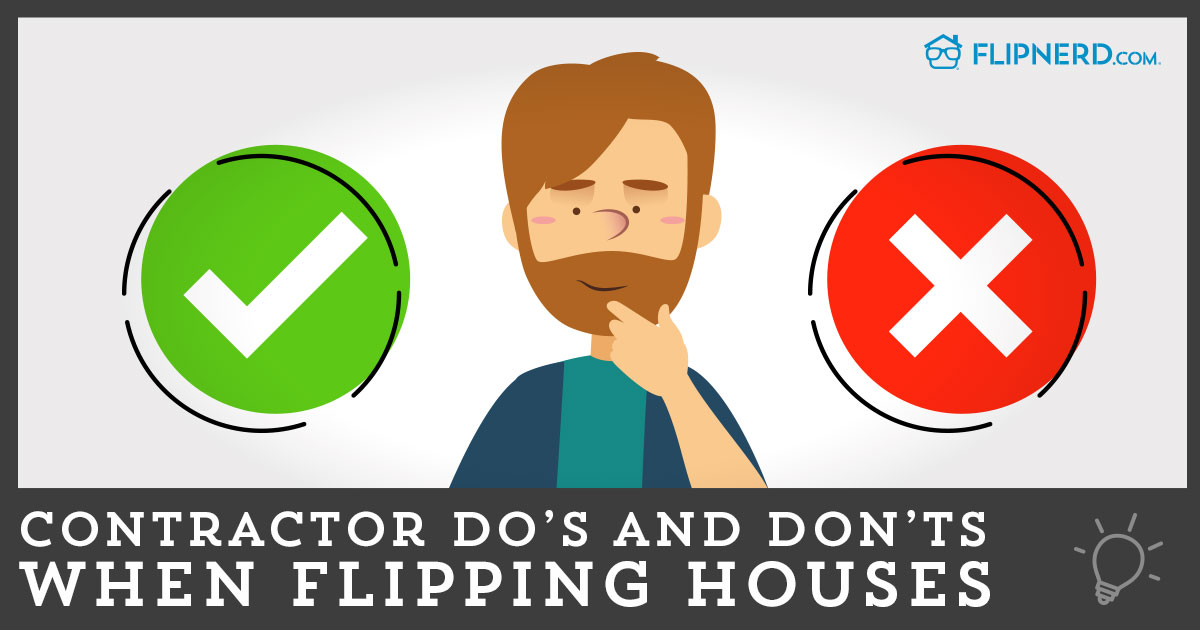Before we get started, we want to disclose that there are nominal costs for the strategies mentioned in this article. We’re talking stamps, gas for your car, white cardboard/corrugated plastic, etc.
Now that we’ve cleared that up, getting started in real estate investing can be difficult when you don’t have a large marketing budget to bring in motivated leads. There are easy, automated ways to send out marketing materials to potential sellers but it costs a good bit of money if you’re wanting to send to a large list.
So what do you do if your marketing budget is, well, virtually non-existent?
You have to put the work in.
After you start getting deals, you’ll have the funds to automate your marketing so you can focus on other aspects of the business but until then, you have to put in more leg work.
You might be thinking, “what do I do once I find a property since I have no money for financing?” and we’ll get to that in just a little bit.
Driving for Dollars, Door Hangers, and Yellow Letters
An easy way to start finding potential investment properties is to simply drive through neighborhoods that have properties in distress. Make a note of the property address so you can look up tax records for the property. If it’s a property worth pursuing, write out a letter explaining that you’re an investor in the area and would like to purchase their property, as-is, and mail it to them.
We have an entire blog dedicated to yellow letters that you can check out here.
You can also have a door hanger created that lets the owner know who you are, that you are interested in purchasing their property in as-is condition, and provide your contact information. You can go on fiverr.com and have someone create you a quick design that you can upload and have printed pretty cheap from Vistaprint.com.
It’s a cost effective way to find properties that might have an owner who wants or needs out of the property. These deals might not be on lists that other investors are buying and marketing to so you have the potential to be the first real estate investor to reach out to them.
Bandit Signs
Check your local laws regarding bandit signs before you go out and purchase a stack of them. They aren’t legal everywhere and you don’t want code compliance calling or fining you for illegally placed bandit signs.
For locations that are legal, you don’t have to go fancy and have printed signs made. In fact, some say that the handwritten signs perform better. The materials to create these are pretty cheap and if placed in a few strategic, high-traffic areas, you might get your phone ringing.
Keep it simple.
Write that you buy houses in as-is condition and give a phone number. If people are at a red light and see your sign, you want them to quickly jot down the information so they can contact you.
Remember that these signs aren’t going to be loved by everyone and there is the possibility that someone will remove your signs. Luckily they’re pretty affordable to create and if you can get a deal from them, it was well worth the effort and few bucks to create them.
Our friend Jacci Konkle shares how she uses bandit signs in her neighbors yards and if a deal comes from their sign, she pays a referral fee to them. You can listen to the lesson here. We recommend talking to your local real estate attorney to discuss the specifics of paying a referral fee as well.
Networking
Networking with the right people is huge as you’re getting started in real estate investing. Look online to see if you have a REIA near you and go to the meetings. Not only will you learn valuable information about the industry, but you’ll be able to talk with other investors, vendors, realtors, etc. who might help bring you your next deal.
Related Blog: Critical Networking Event Mistakes
If you’re able to, have some simple business cards made that have your contact information on it. Leave the back blank so you can write on the back if needed. You can usually order a small box for pretty cheap but it will pay off as you make more connections in the industry.
You can also post on Facebook and Craigslist, letting people know you’re looking to buy properties in “as-is” condition. It’s a simple post but if it gets in front of the right people, you might just land a deal.
As you network, you can slowly build up your buyers list so when you have a property you want to wholesale, you’ll be able to send it out to a well-defined list of buyers who are ready to take action.
When you’re talking with other investors, find out what their criteria is so that if you find a property that matches their criteria, you can contact them specifically (make sure to exchange business cards).
Your Exit Strategy
If you have little to no money, you’re most likely not going to be able to do a rehab or buy and hold because you have no money to put down. This doesn’t rule you out though for finding a deal, finding a buyer, and assigning the property to them.
With an assignment deal, you’re assigning the rights to purchase the property to another wholesaler for a small profit. They are the ones who close on the house and you end up profiting the difference between your agreed price with the seller and the agreed price between the buyer. You’re essentially the middle man, but because you didn’t technically close on the property, you don’t have to bring any money to the table.
Assigning can be a great way to get started because there’s little risk involved and you can profit without putting any money down. You must be clear with the seller that you aren’t signing a contract to purchase the property but instead you’re assigning the rights to purchase the property.
Simply tell your seller that the house doesn’t fit your criteria but you’re connected to several investors that would be interested. Explain to the seller that the offer will be the same (cash and as-is) and they’re not at risk of losing anything. You will need their permission to show the house to potential buyers and will always respect their privacy and give them a 24-hour notice before showing up.
In addition, there are investors out there that “reverse wholesale”, where they find out a buyer’s criteria first and then look for a property that matches. You’re doing more of the legwork but if you find a property and assign it to them, it’s a easy way to bring in a profit and you’ve created a business relationship that benefits both parties.
Before you decide to assign a property, look into state laws regarding assigning properties and we advise that you speak with a local real estate attorney as each state is different. It’s also a good idea to find a local title company who is familiar with assignment deals.
When you’re just starting out, you’re going to have to do more work to get leads coming in. Once you get a larger marketing budget, you can automate your marketing and you have more options. You can focus on online marketing with pay-per-click or sponsored ads on Facebook, for example. You can also send out postcards or yellow letters to motivated sellers.
Get creative in your marketing and be willing to put the work in to reap the rewards later.









